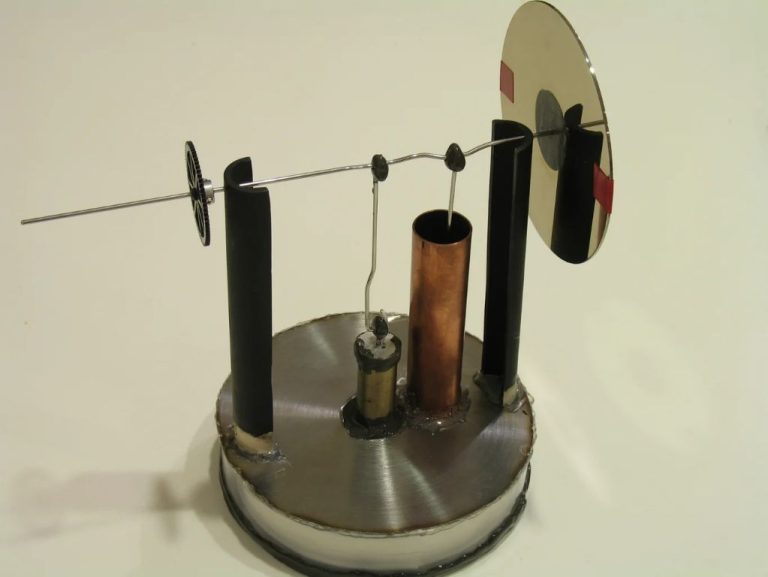Is It Safe To Inhale Eucalyptus Oil?
What is Eucalyptus Oil?
Eucalyptus oil is an essential oil derived from the oval-shaped leaves of eucalyptus trees (Eucalyptus globulus). The leaves are harvested, dried, and then put through a distillation process to extract the aromatic oil. The main active ingredient in eucalyptus oil is a compound called eucalyptol or cineole, which makes up 70-90% of the oil.
Eucalyptol is a colorless liquid that has a distinctive medicinal odor. It has antiseptic and anti-inflammatory properties that can help treat respiratory conditions when inhaled or applied topically. Other chemical components in eucalyptus oil include alpha-pinene, beta-pinene, and limonene.
Eucalyptus oil has been used for centuries in traditional Aboriginal medicine and is now a common ingredient in cough drops, chest rubs, and vapor rubs due to its ability to help clear nasal and bronchial congestion when inhaled.
Benefits of Eucalyptus Oil
Eucalyptus oil has several beneficial uses that make it a popular natural remedy. Here are some of the main benefits of using eucalyptus oil:
Pain Relief
One of the most common uses of eucalyptus oil is for pain relief. Studies show that inhaling eucalyptus oil can help reduce pain and inflammation associated with conditions like rheumatoid arthritis and osteoarthritis (source). The active compound eucalyptol is thought to be responsible for these pain-relieving effects.
Reduce Congestion
Eucalyptus oil is often used to help clear sinus congestion and relieve coughs. It works as a decongestant and expectorant, helping to thin mucus and improve airflow. Adding a few drops to a diffuser or inhaling eucalyptus steam can open up clogged airways and make breathing easier (source).
Treat Wounds
Some research indicates that eucalyptus oil can have antimicrobial and anti-inflammatory effects when applied topically on the skin. This makes it potentially useful for treating minor wounds, burns, scrapes, and skin infections. However, more research is still needed on its efficacy and safety for wound care (source).
Potential Risks of Inhaling Eucalyptus Oil
While eucalyptus oil has benefits, inhaling it can also come with risks. The main potential risks of inhaling eucalyptus oil include:

Irritation
Inhaling highly concentrated eucalyptus oil or oil that hasn’t been properly diluted can irritate the lungs and airways (1). This can cause coughing, breathing difficulties, and a burning sensation in the throat and chest.
Toxicity
Ingesting or inhaling too much eucalyptus oil can cause toxicity and poisoning symptoms like nausea, vomiting, diarrhea, dizziness, muscle weakness, and more (2). Severe cases can lead to seizures, coma, and respiratory failure.
Allergic Reactions
Some people may be allergic to eucalyptus and can experience allergic reactions when inhaling it, such as hives, itching, and swelling (3). Asthma sufferers may also find that inhaling eucalyptus triggers asthma attacks.
Proper Dosage and Use
When inhaling eucalyptus oil, it’s important to follow safe practices to avoid toxicity. The recommended dosage for inhalation is no more than 0.05 mL to 0.2 mL of oil per session, inhaled indirectly by putting a few drops in hot water or a diffuser.
Unsafe practices include inhaling the oil directly, inhaling too much at once, or inhaling too frequently. Direct inhalation and excessive inhalation can lead to lung inflammation, throat irritation, and central nervous system issues like dizziness or seizures.
To use eucalyptus oil safely:
– Add 2-3 drops into a bowl of boiling water. Place a towel over your head and inhale the vapors for 5-10 minutes.
– Use a few drops in a cool mist humidifier or diffuser. Diffuse the oil intermittently, taking breaks as needed.
– Mix a couple drops with a carrier oil and rub on your chest. Inhale normally as the scent releases.
Always start with minimal amounts of eucalyptus oil and increase gradually as tolerated. Take breaks between inhalation sessions and hydrate well. Discontinue use if any negative reactions occur.
Children should not inhale eucalyptus oil without medical supervision due to toxicity risks. Adults with asthma or other lung conditions should exercise caution and consult a doctor first.
Who Should Not Inhale Eucalyptus Oil
Certain groups of people should avoid inhaling eucalyptus oil as it can pose greater risks for them. This includes:
Young children
Young children have smaller airways than adults, so inhaling eucalyptus oil can irritate their respiratory system more easily. The effects on brain development are also not known, so it’s best for kids under age 10 to avoid inhaling eucalyptus oil.
Pregnant women
There is not enough reliable research on the safety of eucalyptus oil for pregnant women. Since eucalyptus oil can be toxic if consumed orally, pregnant women should exercise caution and avoid inhaling it.
People with asthma
Eucalyptus oil can cause bronchospasm and worsen asthma symptoms. People with asthma should avoid inhaling eucalyptus oil as it can trigger an asthma attack.
Signs of Eucalyptus Oil Poisoning
Inhaling too much eucalyptus oil can result in signs of poisoning. According to the Poison Control Center https://www.poison.org/, the most common symptoms include:
- Coughing – Inhaling concentrated eucalyptus oil can irritate the throat and lungs, resulting in coughing.
- Difficulty breathing – The volatile compounds in eucalyptus oil can cause breathing difficulties, wheezing, and shortness of breath.
- Rash – Eucalyptus oil may cause skin irritation and inflammation, leading to redness, rash, and dermatitis.
- Seizures – At very high concentrations, eucalyptus oil can affect the central nervous system, potentially causing seizures, especially in children.
The onset of these symptoms usually occurs within minutes to hours after inhaling too much eucalyptus oil. The effects may be more severe in people with asthma, allergies, or sensitivity to eucalyptus oil.
First Aid for Eucalyptus Oil Poisoning
If eucalyptus oil poisoning is suspected, it is important to seek medical attention right away. According to Poison Control, the first aid steps are:
- Get fresh air by getting the person away from the area with eucalyptus oil fumes.
- Rinse out the mouth with water if the eucalyptus oil was ingested. Do not induce vomiting.
- Immediately call poison control at 1-800-222-1222 for guidance on next steps.
Poison control specialists are available 24/7 and can advise on whether emergency medical care is needed based on the dosage and symptoms.
Do not wait for symptoms to appear before calling poison control if eucalyptus oil was ingested or inhaled in large amounts. Timely medical care can make a difference in the severity of symptoms.
Storing Eucalyptus Oil Safely
Proper storage is crucial for maximizing the shelf life and potency of eucalyptus oil. According to The Coconut Mama, the best way to store eucalyptus essential oil is in a cool, dark, and dry place away from sunlight and heat1. Exposure to light and heat can cause the essential oil to deteriorate more rapidly.
Young Living recommends keeping eucalyptus oil in tightly sealed, childproof containers to prevent accidental ingestion2. Store eucalyptus oil up high and completely out of reach of children and pets. Do not place eucalyptus oil in the refrigerator or freezer for long-term storage, as this can cause crystals to form in the oil that give it a foggy appearance.
Other tips for proper storage include keeping eucalyptus oil away from direct sunlight, using dark colored glass bottles, and maintaining a consistent, moderate temperature. With proper storage, eucalyptus oil can retain its therapeutic potency for many years.
Alternative Congestion Remedies
There are several natural alternatives to inhaling eucalyptus oil that can provide congestion relief without the risks.
Steam
Inhaling steam is an easy and safe way to loosen mucus and relieve congestion. Boil water, remove from heat, and breathe in the vapors directly or lean over the pot with a towel draped over your head to trap the moisture. Steam hydrates the nasal passages and helps clear out mucus and allergens (Source).
Saline Spray
Using a saline nasal spray can also help relieve stuffy noses by thinning out mucus and moisturizing nasal passages. Saline sprays are made from purified water and salt and are safe for frequent use. Spray the solution directly into the nose as needed for congestion relief (Source).
Peppermint Oil
Peppermint oil contains menthol, which provides a cooling sensation and helps open up nasal airways. Add a few drops of peppermint essential oil to a bowl of hot water or diffuse it in the air. Avoid directly inhaling the oil, as it can be irritating in high concentrations (Source).
When to Seek Medical Care
In most cases, inhaling eucalyptus oil in small doses is not harmful. However, seek immediate medical care if you or someone you know experiences difficulty breathing, a rash, swelling, or persistent cough after inhaling eucalyptus oil.
Signs of a serious reaction can include:
- Trouble breathing or tightness in the chest
- Swelling of the lips, face, tongue, or throat
- Dizziness or fainting
- Rapid heartbeat
- Hives or rash
An allergic reaction to inhaled eucalyptus oil can be life-threatening and requires emergency care. Call 911 or poison control at 1-800-222-1222 if you suspect an overdose or allergic reaction. Do not wait to see if symptoms improve on their own.
Seek prompt medical treatment if inhaling eucalyptus oil results in a persistent cough that lasts more than a few days. This could indicate respiratory irritation or inflammation. It’s especially important for people with asthma or other lung conditions to discontinue use and talk to their doctor if they experience ongoing coughing or breathing problems after using eucalyptus oil.
In children, signs requiring immediate medical care include excessive sleepiness, confusion, vomiting, or uncontrolled shaking or twitching. Eucalyptus oil poisoning can be dangerous in children and may require hospital admission even if symptoms seem minor.
Do not attempt to self-treat a reaction to inhaled eucalyptus oil. Getting timely professional care maximizes the chances for a full recovery. Call poison control or 911 without delay if you have any concerns after inhaling eucalyptus oil.


